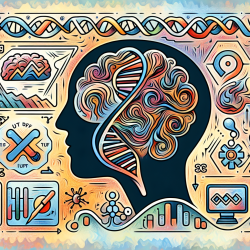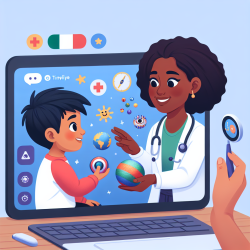The COVID-19 pandemic has brought about unprecedented challenges to mental health, exacerbating feelings of distress and loneliness. Recent research by Keller et al. (2022) titled "Distress, loneliness, and mental health during the COVID-19 pandemic: Test of the extension of the Evolutionary Theory of Loneliness" sheds light on these issues. This blog aims to help practitioners implement findings from this research to improve their skills and encourage further exploration.
Understanding the Evolutionary Theory of Loneliness
The Evolutionary Theory of Loneliness (ETL), developed by Cacioppo and Cacioppo (2018), posits that perceived social isolation can lead to long-term mental and physical health consequences. The recent study by Keller et al. (2022) extends this theory by examining the relationship between distress, anxiety, loneliness, and depression during the COVID-19 pandemic.
Key Findings
The study, conducted with a German rehabilitation sample, found that:
- Distress and depression are significantly correlated.
- Anxiety and loneliness mediate the relationship between distress and depression.
- 42% of the variance in depression can be explained by these factors.
These findings underscore the importance of addressing both anxiety and loneliness in therapeutic settings to mitigate depressive symptoms.
Implications for Practitioners
Practitioners can leverage these findings in several ways:
- Screening and Assessment: Regularly screen for anxiety and loneliness in addition to distress and depression. Use validated tools such as the COVID-19 Peritraumatic Distress Index (CPDI) and the UCLA Loneliness Scale.
- Integrated Treatment Plans: Develop integrated treatment plans that address anxiety and loneliness alongside other mental health concerns. Cognitive-behavioral therapy (CBT) can be effective in this regard.
- Community and Social Support: Encourage participation in community and social support groups, which can help alleviate feelings of loneliness and provide a sense of belonging.
- Teletherapy: Utilize teletherapy to reach clients who may be socially isolated or unable to attend in-person sessions. This approach has been shown to be effective and can increase access to care.
- Ongoing Research: Stay updated with ongoing research in this area. Consider participating in or conducting further studies to explore additional mediating factors and interventions.
Encouraging Further Research
The study by Keller et al. (2022) is a significant step in understanding the complex interplay between distress, anxiety, loneliness, and depression. However, more research is needed to explore these relationships further, especially in diverse populations and settings. Practitioners are encouraged to engage in research activities and contribute to the growing body of knowledge in this field.
To read the original research paper, please follow this link: Distress, loneliness, and mental health during the COVID-19 pandemic: Test of the extension of the Evolutionary Theory of Loneliness.
Conclusion
The COVID-19 pandemic has highlighted the critical need for mental health practitioners to address distress, anxiety, and loneliness in their clients. By implementing the findings from the study by Keller et al. (2022), practitioners can develop more effective treatment plans and contribute to the overall well-being of their clients. Continued research and collaboration in this area will be essential in navigating the ongoing mental health challenges posed by the pandemic.










